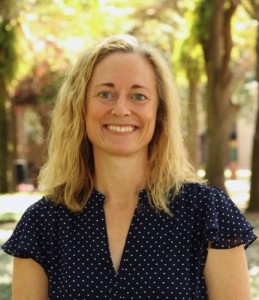About me
I am a cultural anthropologist interested in human-environment relations, spanning a range of topics from how we learn and make sense of the world around us, to landscape change over time, to collaborative and engaged research aimed at creating livable and just worlds in the Anthropocene. Here is a short interview where I describe my work.
What guides my work
I am currently an Associate Professor in the Department of Anthropology at the University of South Florida (USF) and Research Affiliate of the USF Water Institute, School of Global Sustainability, and Center for Latin American and Caribbean Studies. My ethnographic research over the last decade connects ideas of livability and lived experiences of environmental change in coastal areas where rivers meet the sea—from large urban areas (Tampa Bay, Florida) to small tourism and fishing communities (Placencia, Belize).
Seeing Double: Livability in the Anthropocene
I explore what it is to simultaneously experience increasingly rapid and inequitable change, while also anticipating even more precarious futures. Through ethnographic research on water pollution and red tide, tree loss in urban forests, beach erosion and coral restoration, I frame this as “seeing double.” This thread runs through my collaborative and participatory work on climate change and waterscapes, emphasizing digital storytelling, public dialogue, policymaking, and planning.
Learning the environment during childhood
Much of my ethnographic research is situated at the interface between environmental anthropology and the anthropology of childhood. Since 2000 I have explored the ways environmental knowledge, practice, and meanings are learned, taught, and transformed by children and their families in Q’eqchi’ and Mopan Maya communities in Belize. This research forms the basis for my book manuscript: Landscapes of Childhood: Growing Up Maya in Southern Belize. My work on how children and youth experience the “natural” world has contributed to the anthropology of childhood, environmental and Indigenous sciences, studies of situated learning, and informal science education.
Research Projects
My students, colleagues and I have been supported through several programs at the U.S National Science Foundation, including Human Social Dynamics program, NSF Partnerships for International Research in Education, Convergence Accelerator- Blue Economy, the Coastlines and People Program, and Urban Long Term Ecological Research Exploratory grants, in addition to support from the Spencer Foundation and Inter-American Foundation. For more details on these projects, see: Research.
Sharing Findings and Amplifying Stories
Bringing research findings to the public, decision-makers, and policymakers, as well as co-creating spaces to amplify collaborator voices, is critically important. In Belize, I collaborated with colleague Kristina Baines and Maya leaders and educators to develop local environmental and cultural heritage curricula through the TEACHA project. In the Tampa Bay area, we have studied the expansion of gardening and urban agriculture, and environmental pedagogies in schools and community gardens. Through a service learning course, Anthropology of Childhood, undergraduate and graduate students sought to understand youth experiences with gardening and impacts on food preference and access. We completed one of the first local ethnographic studies on the impacts of climate change on water resources and climate futures, covered in 2014 in Bay Soundings. That work expanded to a participatory workshop series on climate futures was discussed on NPR’s 1A show in 2019,
Most recently, my colleagues and I have been focusing on forest ethnography about the social lives of trees and uneven distribution of tree canopy coverage in the City of Tampa. I was a guest on AnthroPod, the podcast of the Society for Cultural Anthropology discussing our work and the Tampa Bay Times ran a story on impacts of Hurricane Milton on our urban forest. In October 2024, I received the NSF/Every Page Foundation Ocean Decade Champion award.
Contact Information
Rebecca K. Zarger, Ph.D.
Associate Professor
Department of Anthropology
University of South Florida
4202 E. Fowler Ave., SOC 107
Tampa, FL 33620
USA
email: rzarger at usf.edu
813-974-0069
